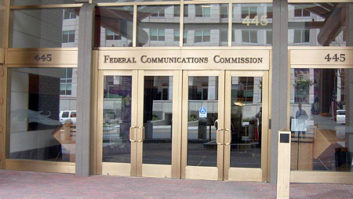On two occasions in the last six months, this column has addressed the regulatory migration toward the Federal Communication Commission�s authorization of non-U.S. citizens to hold majority interests in broadcast stations. Recent actions by the FCC to approve three transactions involving foreign ownership in broadcast stations above the statutory benchmark of 25 percent provide a useful perspective on how future transactions will be processed by the FCC.
By way of background: In July 2016, the FCC sought public comment on three proposals in which non-U.S. citizens would acquire equity and voting interests above the 25 percent benchmark set forth in Section 310(b)(4) of the Communications Act. One transaction proposed that an Australian couple be permitted to expand its interest from 20 percent to 100 percent in a broadcast company with radio stations in Alaska, Texas and Arkansas. Two other transactions proposed the acquisition of up to 49 percent of the equity and voting interests in the broadcasters by foreign investors.

Subsequently, in September 2016, the FCC adopted rules that paved the way for such transactions to be approved. The order established a procedure by which parties seeking approval of foreign investments above the 25 percent benchmark are required to submit a petition for declaratory ruling. The petition must inform the FCC whether the transaction contemplates the assignment or transfer of �controlling� interest in the broadcast station, and if the company is publicly traded, the steps it will take to confirm that foreign investment does not exceed the FCC-authorized stake. The FCC also permitted the post-foreign investment broadcaster to acquire additional stations so long as its ownership structure remained the same.
With these guidelines established, the FCC approved the three transactions referenced above.
Specifically, the FCC approved the foreign ownership of up to 49 percent of the equity and voting interests in Univision Holdings, including up to 40 percent to be held by Televisa, a publically-traded corporation based in Mexico. The FCC imposed a requirement that Univision establish a monitoring program to ensure that it remains below the approved ownership limits and that it modify its organizational documents to require its board of directors to remain in compliance with the terms of the FCC order.
The commission also made clear that any change in ownership or organizational structure that would lead to a foreign ownership stake above that which was approved will require prior FCC approval.
The second transaction involved a TV broadcaster and programmer in Puerto Rico, Hemisphere Media Group. The broadcaster sought approval for a Mexican corporation to increase its ownership interest in Hemisphere from 7 percent of the equity and 13 percent of voting interest up to 49 percent of the equity and voting interest. This approval was requested not only for the current corporate entity, but also for each individual and corporate entity in the ownership chain.
Noting that no party, including the executive branch, had objections to the request, the FCC granted it. As with the Univision transaction, the FCC required Hemisphere to maintain a monitoring program to remain in compliance with the ownership interest limits, and to ensure that any structural change to the corporation does not result in a violation of those limits.
Finally, the FCC granted the request for the married Australian citizens to jointly acquire 100 percent of the equity and voting interest in Frontier Media. In doing so, the FCC noted that the September 2016 order permitted foreign investment up to 100 percent, and that no party, including the executive branch, opposed the transaction. The FCC also noted that the transaction would serve the public interest by both (i) encouraging new sources of investment in the broadcast industry, and (ii) maintaining service to small communities that may have lost service absent approval of the transaction.
With the approval of these transactions and anticipated effectiveness of the September 2016 order, it would appear that the FCC has instituted clear guidelines for future foreign entities to follow should they be interested in investing in the U.S. broadcast industry. Coupled with the likely relaxation of the local media ownership rules under the Pai administration, it is possible that we will see a new wave of media transactions in the near future.
DEADLINES:
June 1, 2017 � Annual EEO public file reports for stations located in Arizona, Idaho, Maryland, Michigan, Nevada, New Mexico, Ohio, Utah, Virginia, West Virginia, Wyoming and Washington, DC, with five or more full-time employees.
June 1, 2017 � Broadcast mid-term report (FCC Form 297) for stations located in Arizona, Idaho, Nevada, New Mexico, Utah and Wyoming with 11 or more full-time employees.












